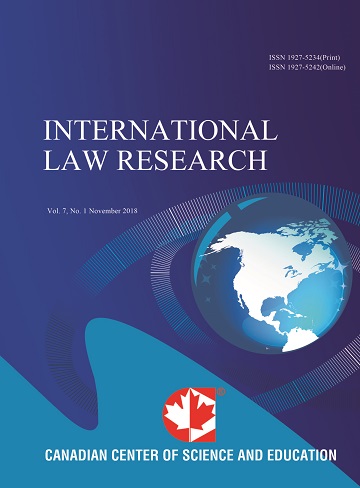Entitlement to Islands, Rocks and Low – Tide Elevations in the South China Sea: Geoeconomics versus Rule of Law
- Solomon E. Salako
Abstract
Entitlement to islands, rocks and low-tide elevations in the South China Sea is based either on historical claims under customary international law or on maritime claims under the United Nations Convention on the Law of the Sea 1982 (UNCLOS). China’s ‘entitlement’ to islands, rocks and low-tide elevations in the South China Sea is based on historical claims spanning over two thousand years. However, there are other littoral claimants such as Taiwan, the Philippines, Vietman and Japan, and what is more, the United States is implicated in Japan’s claim for historical and other reasons. The objects of this article are to evaluate the rule of law and geoeconomics in claims to islands, rocks and low-tide elevations in the South China Sea, especially the Philippines-China arbitration; to show that the historical and maritime claims intersect and collide; to evaluate the United States’ involvement and the Thucydides trap; and to articulate the reasons why geoeconomics should guide not only the interpretation of UNCLOS but also state responses in terms of joint development and unilateral strategies.- Full Text:
 PDF
PDF
- DOI:10.5539/ilr.v7n1p247
Journal Metrics
h-index (2017): 2
i10-index (2017): 0
h5-index (2017): N/A
h5-median (2017): N/A
Index
- CNKI Scholar
- COPAC
- CrossRef
- DTU Library
- EuroPub Database
- Excellence in Research for Australia (ERA)
- Ghent University Library
- Google Scholar
- Harvard Library
- Infotrieve
- Jisc Library Hub Discover
- LOCKSS
- Open J-Gate
- PKP Open Archives Harvester
- Publons
- ROAD
- Scilit
- SHERPA/RoMEO
- Stanford Libraries
- Ulrich's
- UniCat
- Universe Digital Library
- UoS Library
- WorldCat
Contact
- Joseph TaiEditorial Assistant
- ilr@ccsenet.org
